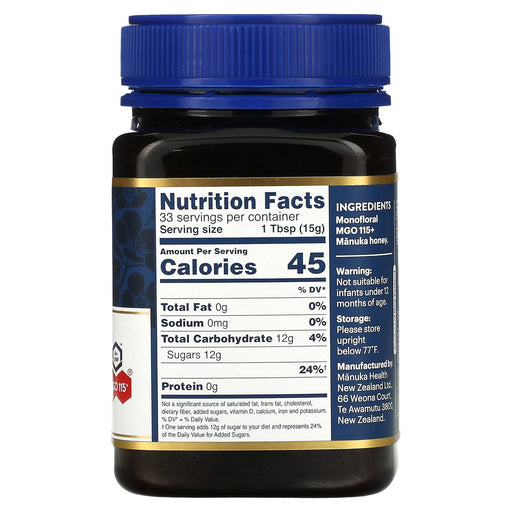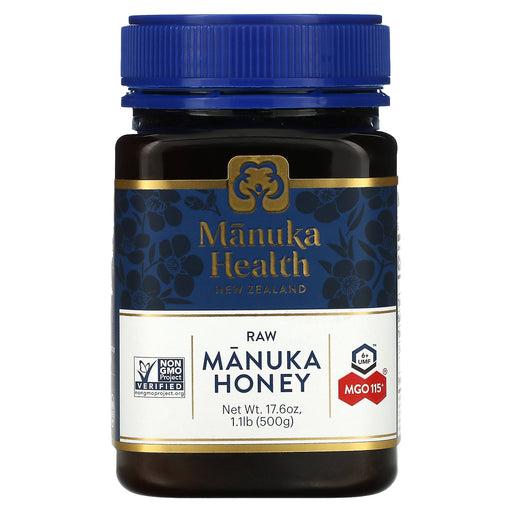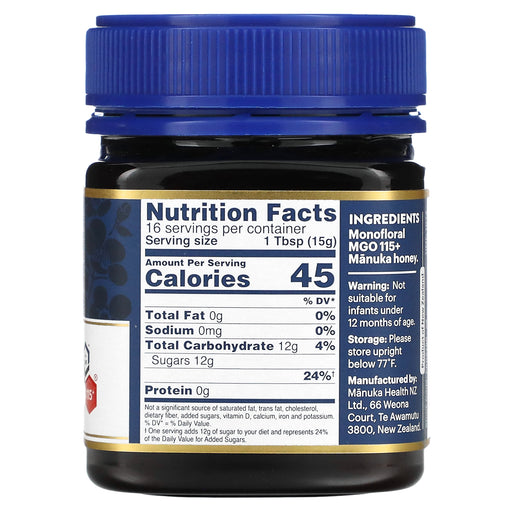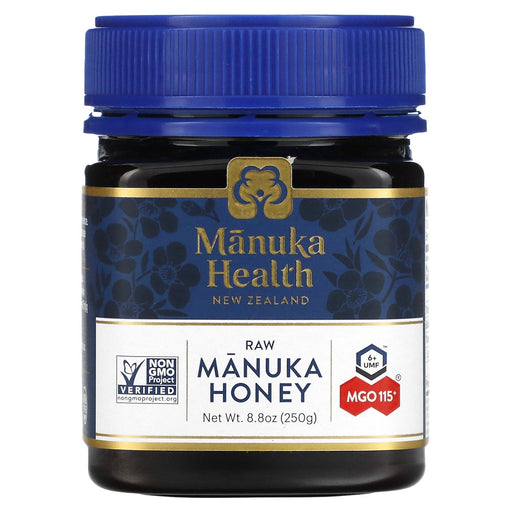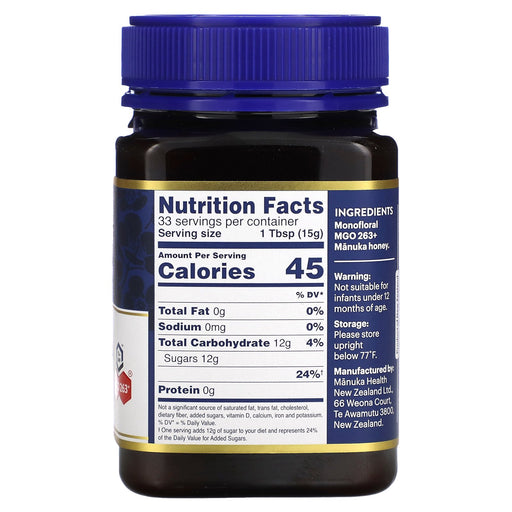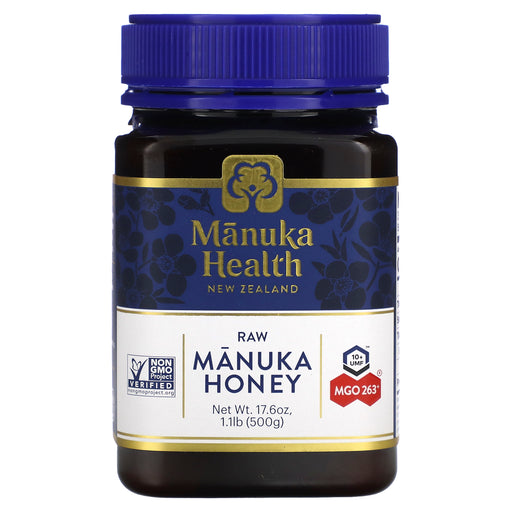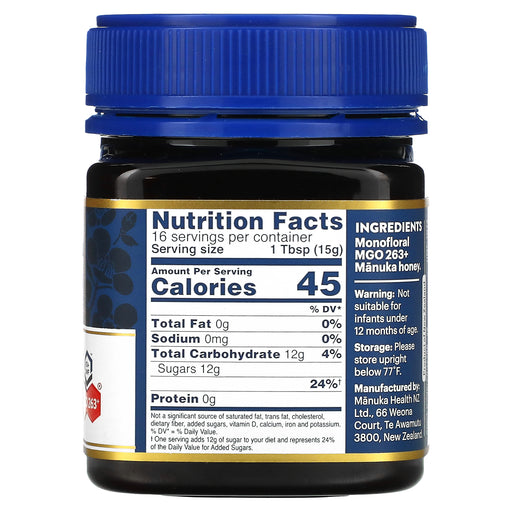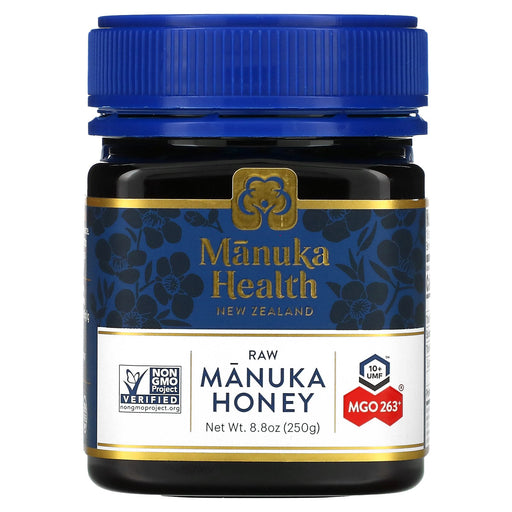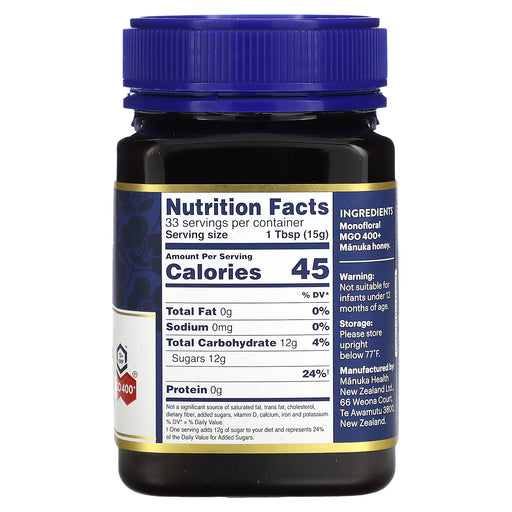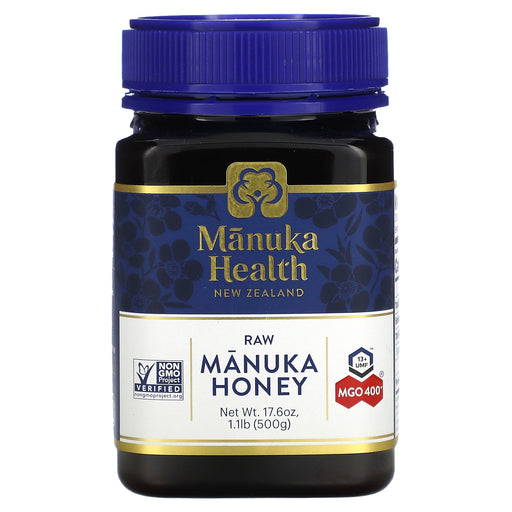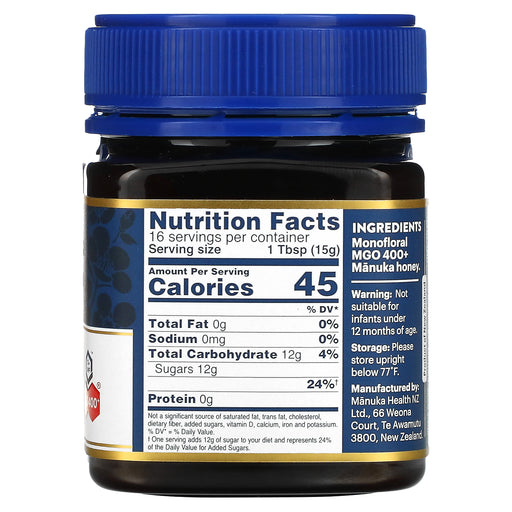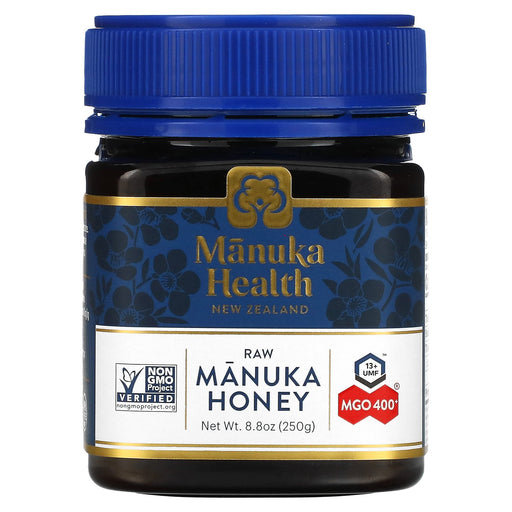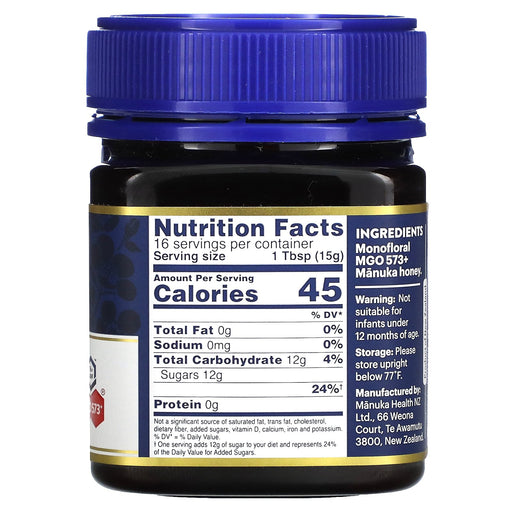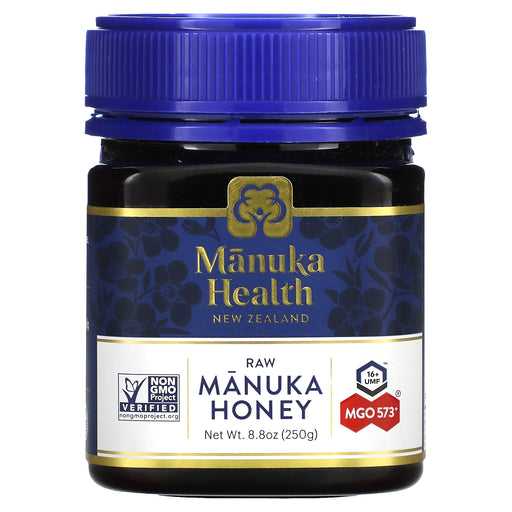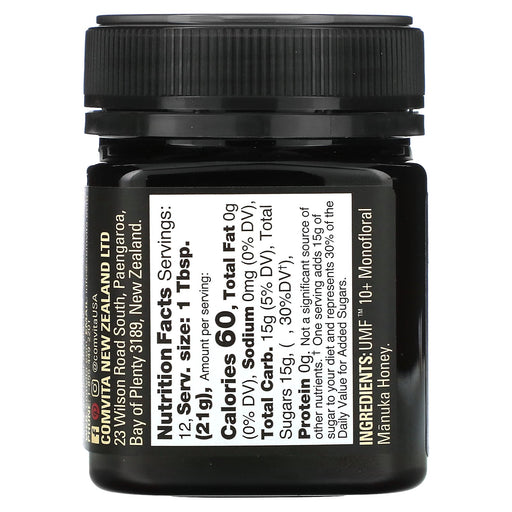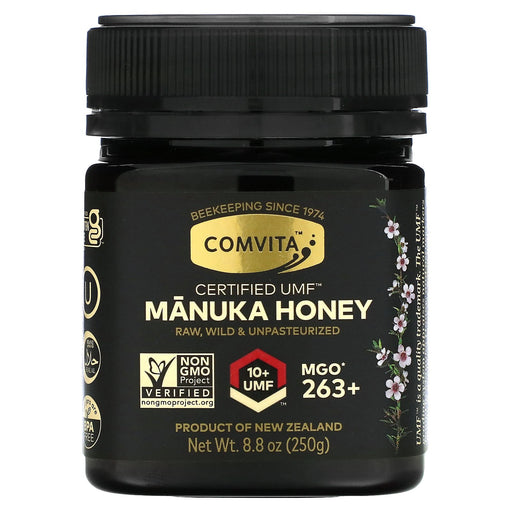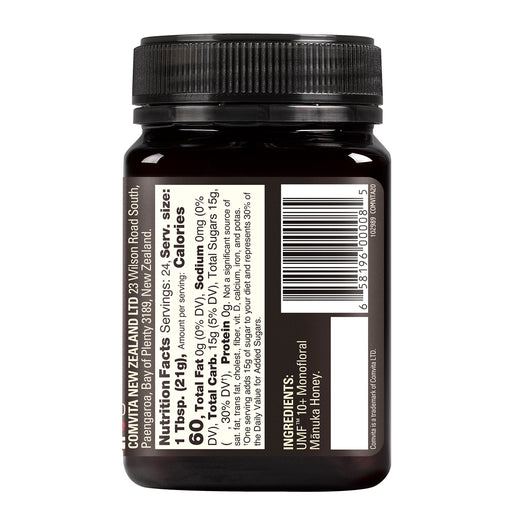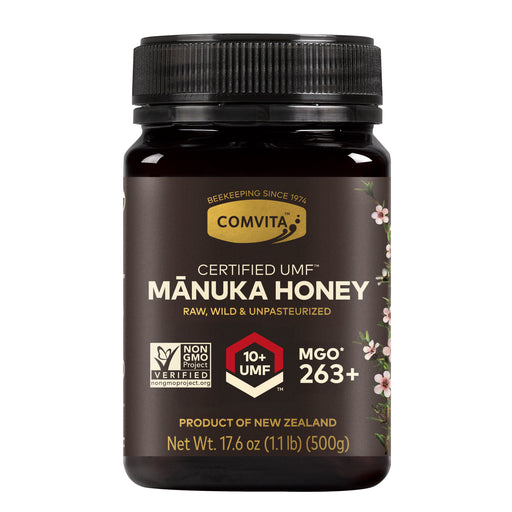
Harness the Remarkable Healing Properties of Manuka Honey: Nature's Powerful Superfood for Optimal Health and Well-Being
Manuka honey, derived from the nectar of the Manuka tree (Leptospermum scoparium) native to New Zealand, has gained global recognition for its unique antibacterial, anti-inflammatory, and antioxidant properties. Unlike regular honey, Manuka honey contains a range of beneficial compounds, such as methylglyoxal (MGO), hydrogen peroxide, and polyphenols, which work together to support immune health, digestive function, wound healing, and overall well-being. By incorporating Manuka honey into your daily wellness routine, you can tap into the remarkable healing power of this natural superfood, promoting optimal health and vitality from the inside out.
The Science Behind Manuka Honey's Unique Healing Properties
Manuka honey's exceptional health benefits can be attributed to its distinct composition and the presence of several key bioactive compounds:
- Methylglyoxal (MGO): This naturally occurring compound is the primary factor responsible for Manuka honey's potent antibacterial activity. The higher the MGO content, the more potent the antibacterial properties of the honey. MGO is formed from dihydroxyacetone (DHA), a compound found in high concentrations in the nectar of Manuka flowers.
- Hydrogen Peroxide: Manuka honey contains enzymes that produce hydrogen peroxide, which contributes to its antimicrobial properties and supports the body's natural healing processes. While the hydrogen peroxide content in Manuka honey is lower than in other types of honey, it remains stable over time, providing a long-lasting antimicrobial effect.
- Polyphenols and Flavonoids: Manuka honey is rich in these powerful antioxidants, which help protect cells from oxidative stress and inflammation, promoting overall health and well-being. These compounds also contribute to the honey's anti-inflammatory and immune-supporting properties.
- Amino Acids and Vitamins: Manuka honey contains a range of amino acids, vitamins, and minerals that support various physiological processes, including tissue repair, immune function, and energy production.
The Potential Health Benefits of Manuka Honey
The unique composition of Manuka honey has been linked to a wide range of potential health benefits, supporting various aspects of physical and mental well-being. Some of the key benefits of Manuka honey include:
- Immune Support: The antibacterial and anti-inflammatory properties of Manuka honey may help support the body's natural immune defenses, reducing the risk of illness and promoting faster recovery from infections.
- Digestive Health: Manuka honey has been shown to help alleviate digestive discomfort, reduce inflammation in the gut, and promote the growth of beneficial gut bacteria, supporting overall digestive health and function.
- Wound Healing: When applied topically, Manuka honey can help promote the healing of cuts, burns, and skin infections, thanks to its antimicrobial and anti-inflammatory properties. It may also help reduce scarring and promote tissue regeneration.
- Oral Health: Manuka honey may help support oral health by reducing the growth of harmful bacteria in the mouth, preventing tooth decay and gingivitis, and promoting healthy gums and teeth.
- Sore Throat Relief: The antimicrobial and soothing properties of Manuka honey can help alleviate sore throat symptoms, reduce inflammation, and promote faster recovery from upper respiratory tract infections.
Choosing High-Quality Manuka Honey
When selecting Manuka honey, it's essential to choose a high-quality product that offers optimal potency and purity. Some key factors to consider include:
- MGO or UMF Rating: Look for Manuka honey that is graded according to its MGO (methylglyoxal) content or UMF (Unique Manuka Factor) rating. The higher the MGO or UMF, the more potent the antibacterial properties of the honey.
- Raw and Unpasteurized: Choose Manuka honey that is raw and unpasteurized, as the heating process can destroy some of the honey's beneficial enzymes and compounds. Raw Manuka honey retains its natural goodness and potency.
- New Zealand Origin: Ensure that the Manuka honey you select is sourced from New Zealand, the native home of the Manuka tree. New Zealand Manuka honey is known for its superior quality and authenticity.
- Trusted Brand: Opt for Manuka honey from reputable brands that prioritize quality, transparency, and sustainability. Look for brands that provide detailed information about their sourcing, processing, and grading practices.
As with any natural remedy, it's essential to consult with a healthcare professional before using Manuka honey for medicinal purposes, especially if you have a pre-existing health condition, are pregnant or nursing, or are allergic to bee products.
Manuka Honey and Related Supplements
While Manuka honey is a potent natural superfood on its own, certain vitamins and supplements can complement its benefits and support overall health and well-being. Some relevant options to consider alongside Manuka honey include:
- Vitamin C: This powerful antioxidant vitamin supports immune function, skin health, and wound healing, complementing the healing properties of Manuka honey.
- Probiotics: These beneficial bacteria support digestive health and immune function, working synergistically with the prebiotic properties of Manuka honey to promote a healthy gut microbiome.
- Zinc: This essential mineral plays a crucial role in immune function, wound healing, and overall health, enhancing the natural healing properties of Manuka honey.
- Propolis: This resinous substance collected by bees has powerful antimicrobial and immune-supporting properties, making it an excellent companion to Manuka honey for overall health and well-being.
Experience the Healing Power of Manuka Honey
At Health Orchard, we are dedicated to providing our customers with the highest quality Manuka honey to support immune health, digestive function, wound healing, and overall well-being. Our carefully curated selection features Manuka honey products from trusted brands, sourced from the pristine natural environment of New Zealand and graded according to their potency and purity.
Whether you're looking to support your body's natural defenses, alleviate digestive discomfort, promote wound healing, or simply enjoy the unique flavor and health benefits of this remarkable superfood, our Manuka honey collection has the perfect product to meet your needs.
Witness the extraordinary healing properties of Manuka honey and experience the difference it can make in your journey towards optimal health and vitality. Browse our selection today and take the first step towards harnessing the power of nature's most potent and versatile superfood.
Frequently Asked Questions about Manuka Honey
1. What is Manuka honey good for?
Manuka honey is known for its unique properties that make it beneficial for various health purposes, such as:
- Wound healing: Manuka honey has been used topically to help heal wounds, burns, and skin ulcers, thanks to its antibacterial and anti-inflammatory properties.
- Digestive health: Consuming manuka honey may help alleviate digestive issues such as acid reflux, gastritis, and inflammatory bowel disease by promoting a healthy gut environment and reducing inflammation.
- Oral health: Due to its antibacterial activity, manuka honey may help prevent tooth decay and gingivitis when used in oral care products or as a mouthwash.
- Immune support: The antioxidants and antibacterial compounds in manuka honey may help support the immune system and protect against harmful bacteria and viruses.
- Skincare: Manuka honey is used in various skincare products for its potential to nourish, hydrate, and promote a clear, healthy complexion.
2. What is the difference between Manuka honey and regular honey?
Manuka honey is derived from the nectar of the manuka tree (Leptospermum scoparium), native to New Zealand and some parts of Australia. It has several unique properties that set it apart from regular honey:
- Antibacterial activity: Manuka honey contains a compound called methylglyoxal (MGO), which gives it strong antibacterial properties. Regular honey also has some antibacterial activity due to hydrogen peroxide, but manuka honey's activity is more stable and potent.
- Unique taste and texture: Manuka honey has a distinct, slightly earthy and herbaceous flavor compared to regular honey. It also tends to have a thicker, more viscous texture.
- Nutritional profile: While all honey contains beneficial nutrients like antioxidants and enzymes, manuka honey may have higher concentrations of certain compounds, such as MGO and DHA (dihydroxyacetone), which contribute to its unique properties.
- Grading system: Manuka honey is graded based on its MGO content, which indicates its potency and antibacterial activity. Regular honey does not have a standardized grading system.
3. Why is Manuka honey so expensive?
Manuka honey is often more expensive than regular honey due to several factors:
- Limited supply: Manuka honey is produced from the nectar of the manuka tree, which is native to New Zealand and some parts of Australia. The limited geographical range and short flowering season of manuka trees result in a smaller supply compared to other types of honey.
- Labor-intensive production: Harvesting manuka honey requires specialized knowledge and equipment to identify and collect the honey from areas where manuka trees grow. The remote locations and challenging terrain can make the process more labor-intensive and costly.
- Testing and grading: Genuine manuka honey undergoes rigorous testing to determine its MGO content and ensure its authenticity. The testing and grading process adds to the overall cost of the product.
- High demand: As awareness of manuka honey's unique properties and potential health benefits grows, so does the demand for the product. The limited supply and high demand contribute to the premium price of manuka honey.
4. Can I drink Manuka honey every day?
Consuming manuka honey every day is generally considered safe for most people, but there are a few points to keep in mind:
- Moderation: While manuka honey has potential health benefits, it is still a form of added sugar. Consuming large amounts of honey daily can contribute to excess calorie intake and may impact blood sugar levels. Stick to the recommended serving size of 1-2 teaspoons per day.
- Allergies: If you have a known allergy to honey or bee products, avoid consuming manuka honey.
- Medical conditions: If you have diabetes or other health conditions that require you to monitor your sugar intake, consult with your healthcare provider before adding manuka honey to your daily diet.
- Interactions: Manuka honey may interact with certain medications, such as antibiotics or blood thinners. If you are taking any medications, consult with your healthcare provider before consuming manuka honey regularly.
5. Can I take Manuka honey on an empty stomach?
Yes, you can take manuka honey on an empty stomach. In fact, consuming manuka honey on an empty stomach may be beneficial for certain purposes:
- Digestive health: Taking manuka honey on an empty stomach may help soothe and support the digestive system, particularly if you experience acid reflux or other digestive discomfort.
- Immune support: Consuming manuka honey on an empty stomach may allow for better absorption of its beneficial compounds, which can help support your immune system.
- Energy boost: The natural sugars in manuka honey can provide a quick energy boost when consumed on an empty stomach, making it a good option for a pre-workout snack or a pick-me-up during the day.
However, if you have diabetes or are sensitive to blood sugar fluctuations, it may be better to consume manuka honey with a meal or snack to help slow down the absorption of sugars.
6. Is Manuka honey good for fatty liver?
Manuka honey may have some potential benefits for liver health, including fatty liver disease, due to its unique properties:
- Anti-inflammatory effects: Manuka honey has been shown to have anti-inflammatory properties, which may help reduce inflammation in the liver and protect against liver damage.
- Antioxidant content: The high antioxidant content in manuka honey may help protect liver cells from oxidative stress and damage caused by free radicals.
- Blood sugar regulation: Some studies suggest that manuka honey may help regulate blood sugar levels and improve insulin sensitivity, which are important factors in managing fatty liver disease, particularly in individuals with diabetes or metabolic syndrome.
However, it is important to note that while manuka honey may have potential benefits for liver health, it should not be considered a sole treatment for fatty liver disease.


